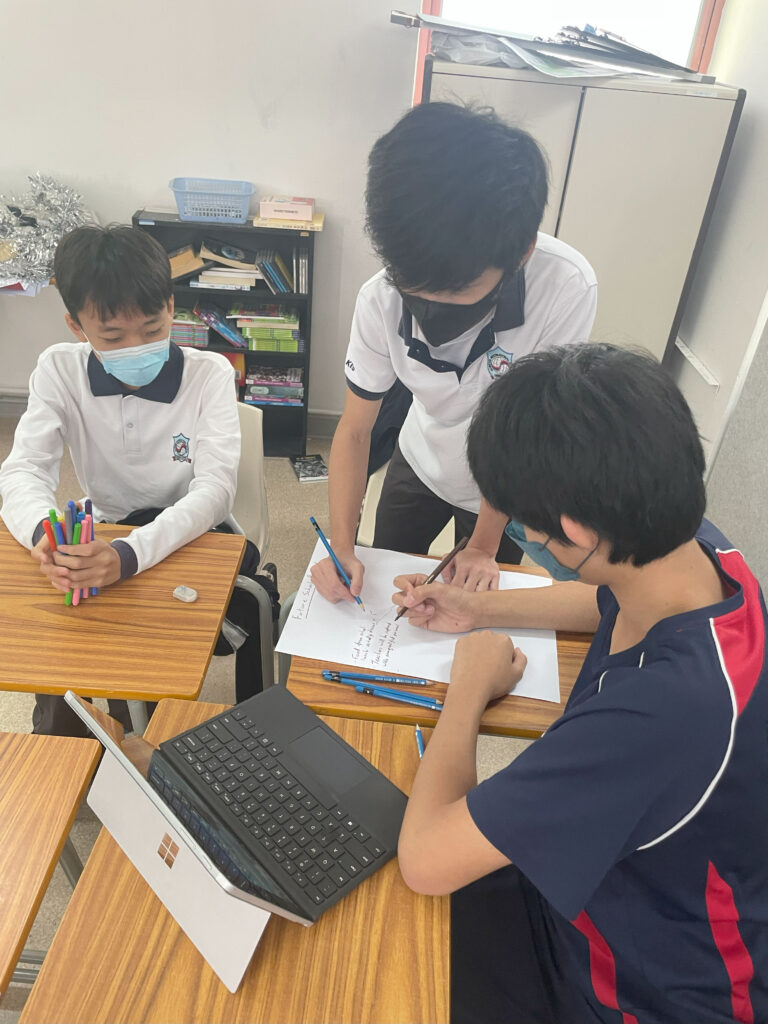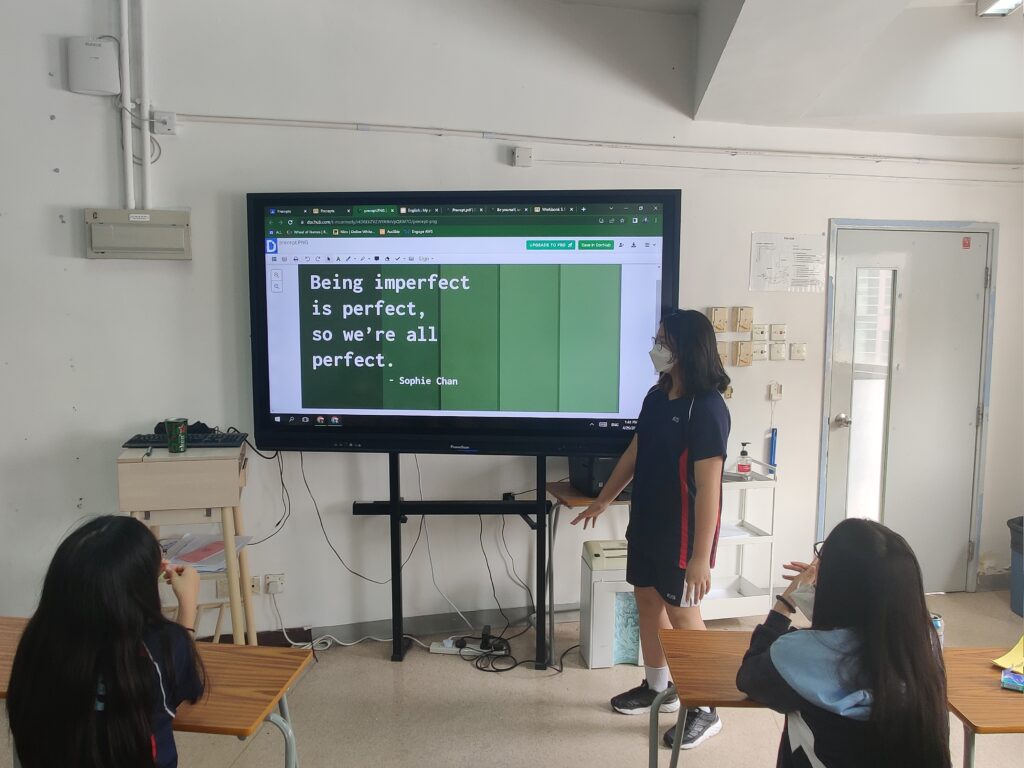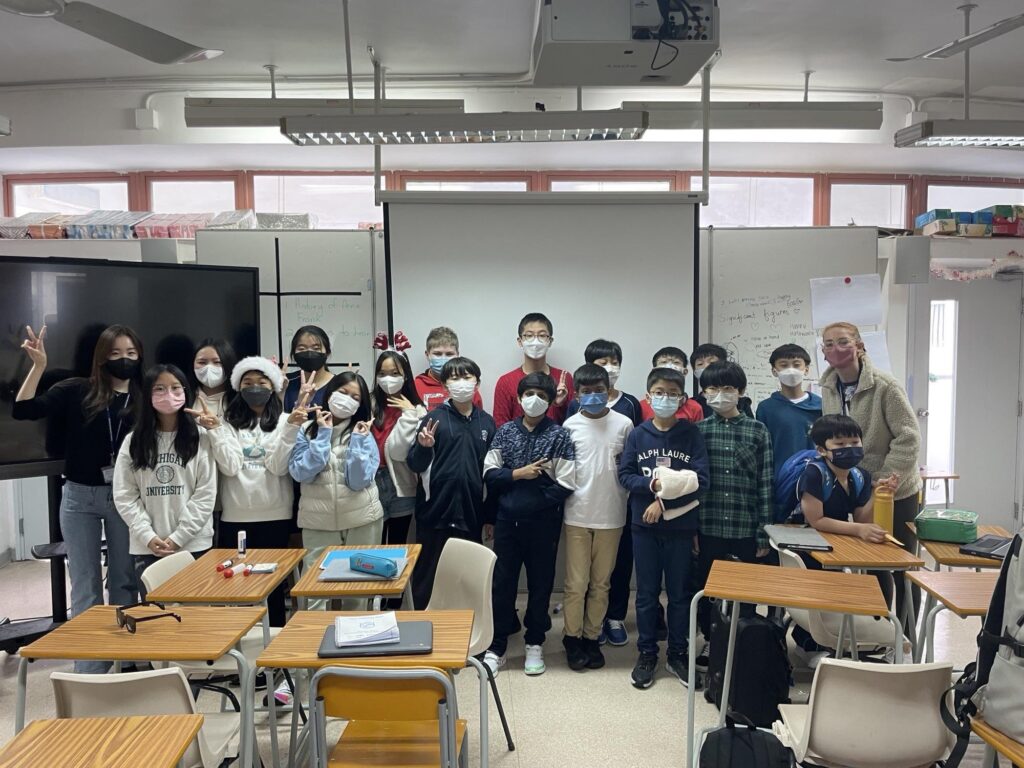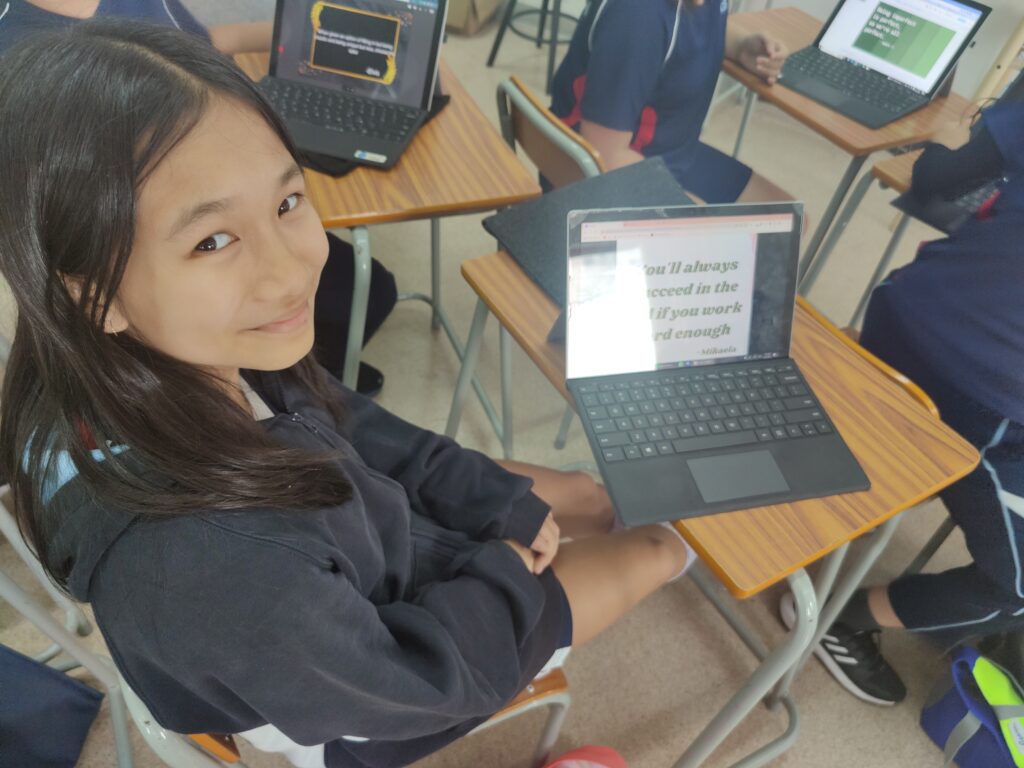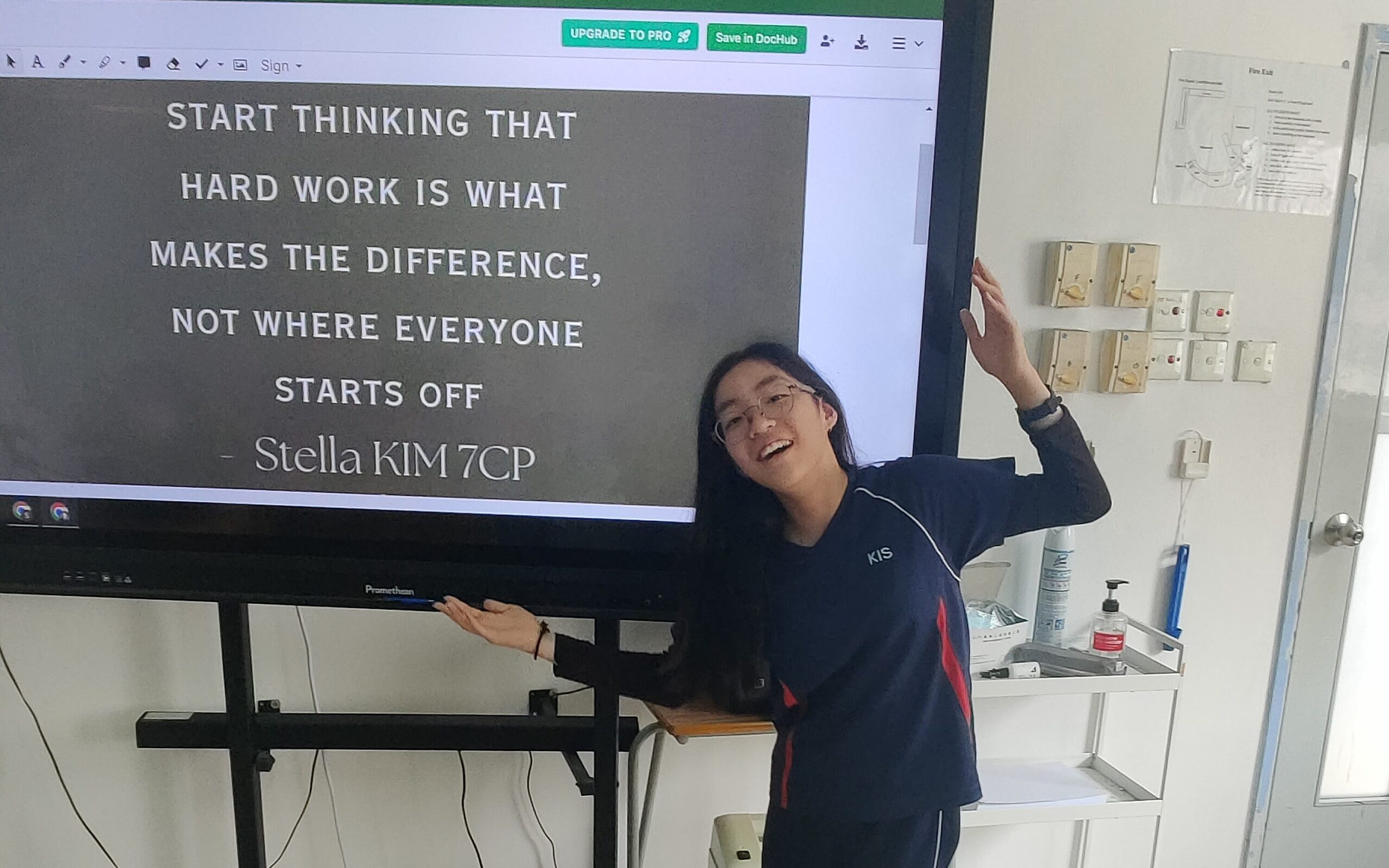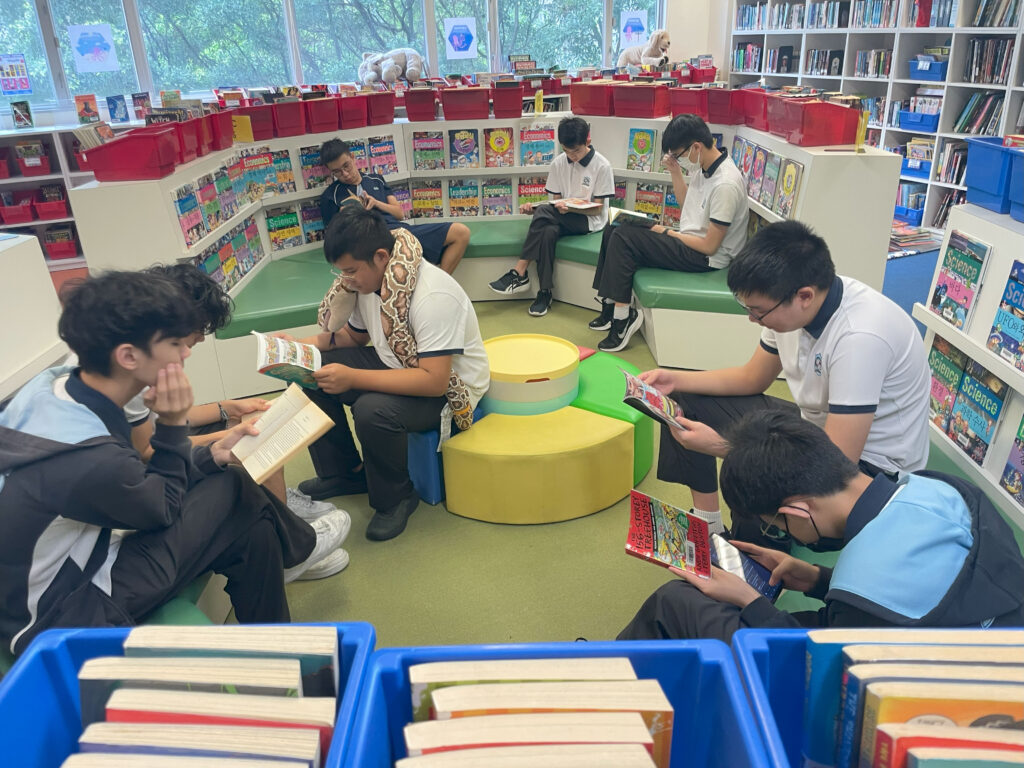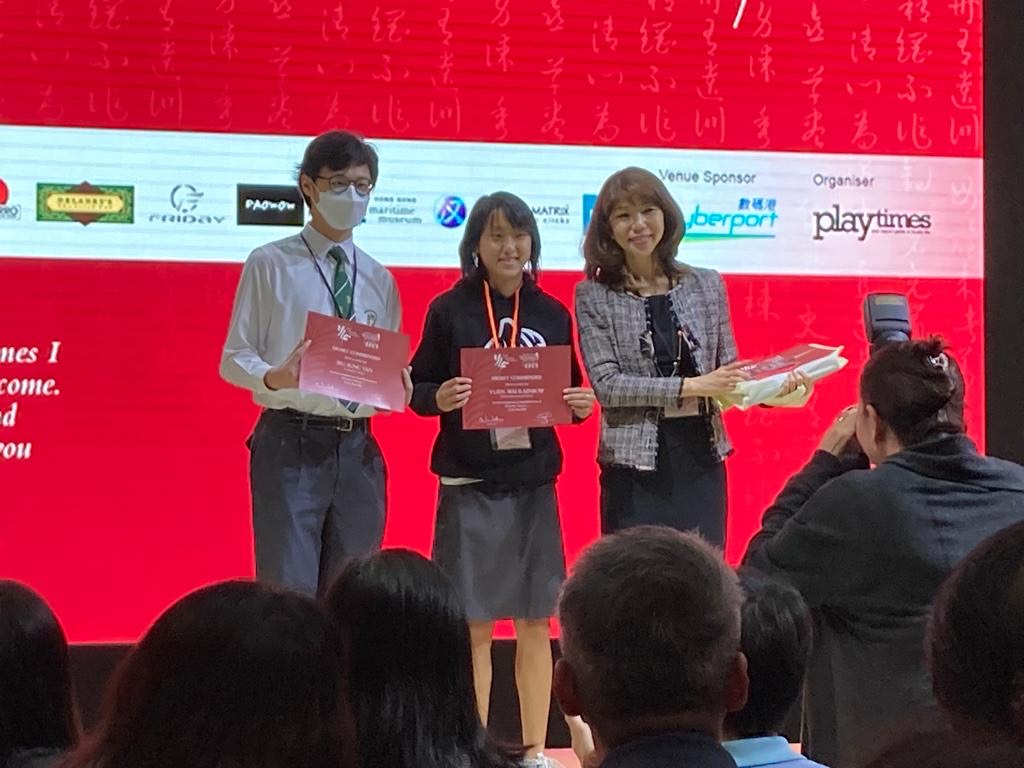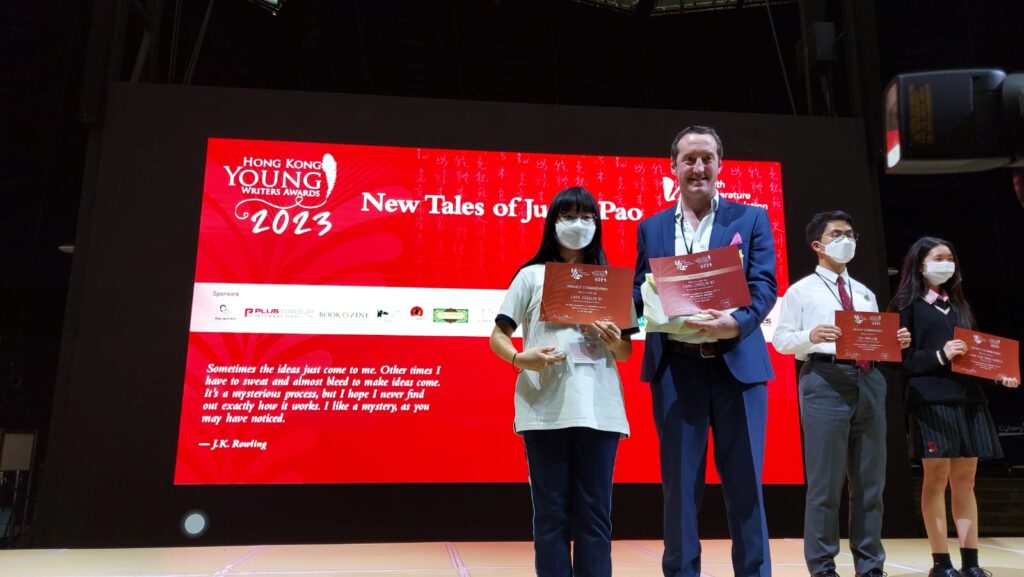ENGLISH
English Language
To develop and equip learners with skills in listening, speaking, reading and writing that they will need to engage in society and future employment. Through a wide range of text types and contexts, students learn to express their creativity and vision using language with confidence.
English Literature
Students are encouraged to read with passion and an enquiring mind across a wide range of genres such as stories, poetry and drama, as well as authentic non-fiction and media texts. Literature in English contributes to the international community of KIS and reflects the experiences of different cultures that enrich our identities.
Language, Literature and Beyond
Literature appreciation explores word choice made by writers and speakers where elements such as patterns, origins and conventions of English are often discussed. The knowledge is useful for language application as students begin to make critical decisions on lexis and syntax to create a semantic field applicable to multiple subjects and situations.
Key Stage 3
- 0861 Cambridge Lower Secondary English
- In-house KS3 English Literature Programme
- Y9 Cambridge Checkpoint Exam
Key Stage 4 (IGCSE)
- 0500 Cambridge First Language English
- 0510 Cambridge English as a Second Language (Speaking Endorsement)
Key Stage 5 (AS and A levels)
- 9695 Cambridge Literature in English
Assessment Procedure
Department Facilities / Resources
- Reading programme for KS3 and KS4 level students
- Resources to support ESL/ EAL students
Key Points from Department Policy:
- To enhance language learning and skills development for academic and communicative purposes
- To encourage application of language skills across multiple subjects where English is used as a medium
- To promote critical thinking amongst students and become reflective, independent learners
- To ensure fair and unbiased assessments with feedback
Extracurricular Activities
Book Week, Hong Kong Young Writers Awards, Local Field trips, Movies/ Theatre trips, and Overseas trips
Useful Subject-Specific Websites

